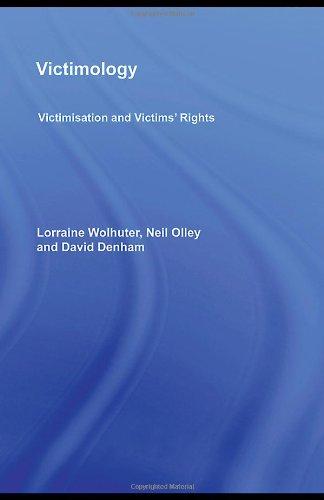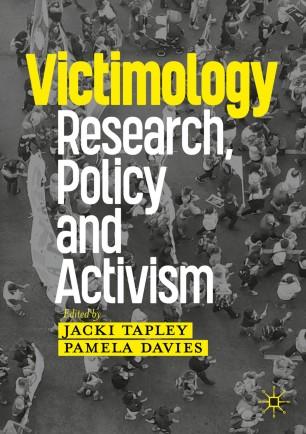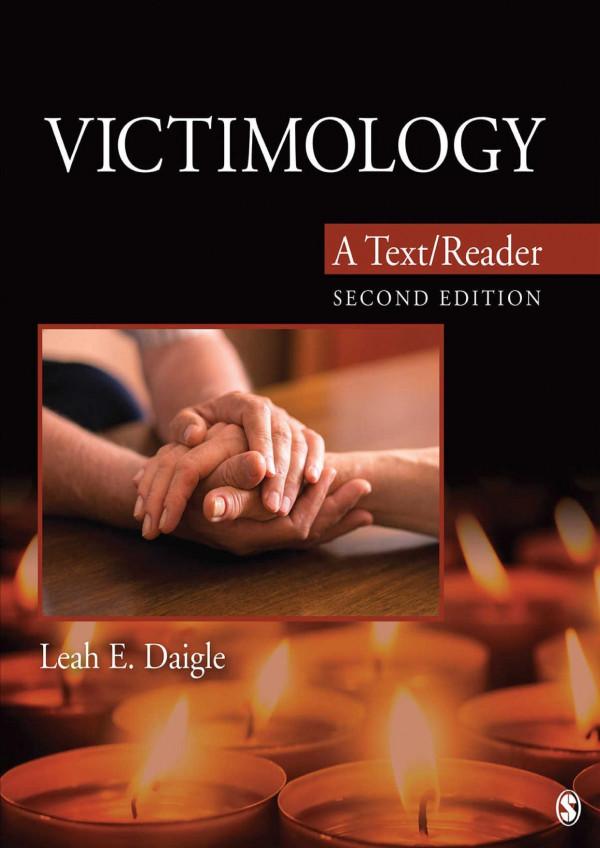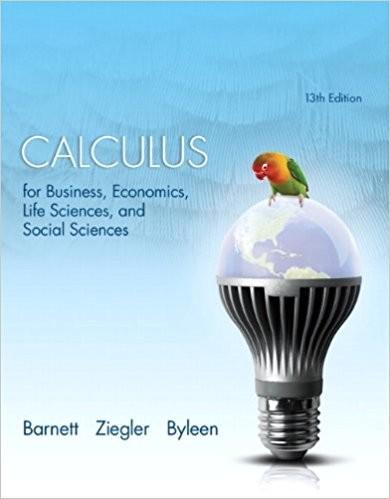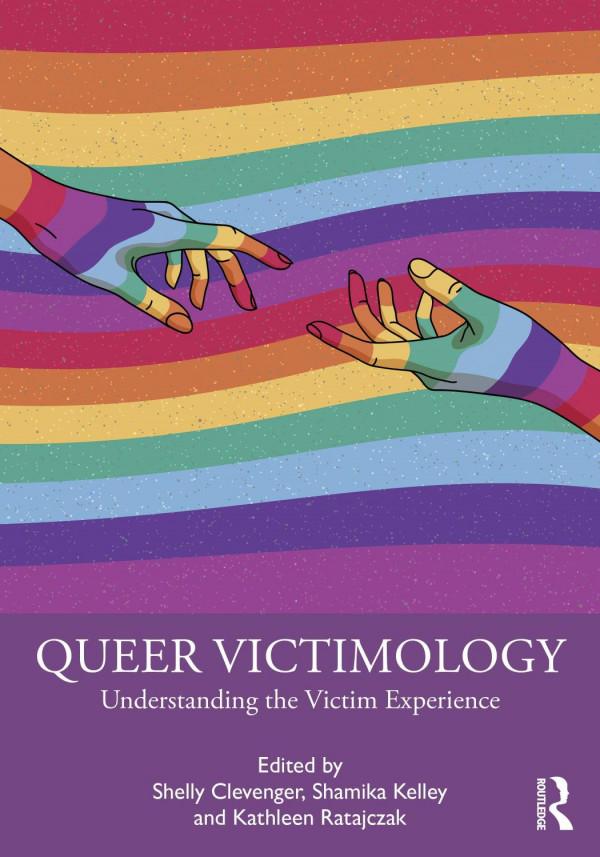Discovering Diverse Content Through Random Scribd Documents
morning, when I get into a car, I feel like greeting the motorman, and every person I meet. But how can I? They would misunderstand.”
“Perhaps,” said Virginia, “that is the motive of the fresh young men who sometimes try to speak to you on the street.”
“There’s just the trouble,” I answered, “that it isn’t their motive, and so it cannot be ours.”
Ruth told us how at the Christian Science church that morning she had left something undone which she regretted. She said: “There was a young man who did not seem to know any one, and he looked lonesome and uncomfortable. I felt as if I ought to go up to him and make him welcome, but I had not the courage.”
“And I think you were right,” I answered her, “for he might not have understood your motive. And yet again he might. It is hard to tell. I am sorry to say we have often to wrong people in this matter.”
I spoke of the sufferings and the wrongs of society, and of how we must realize that these are our sufferings and our wrongs.
“Yes,” said Marian, “but what can we do? We can’t do anything.”
“There is very little we can do, except to be on the right side, and therefore ready to do. I want to have you see the thing as it is, to be conscious of the whole, as your whole self, so that you will act according to that knowledge.”
“Don’t you think,” asked Marian, “that a great many people act the same way, without knowing why they do it?”
“Yes,” I answered, “or else they are only half conscious, or think they have some other motive. But I believe in being fully conscious, and doing things with freedom and from conviction.”
“I don’t believe,” said Marian, “that while I act I think of why I am acting.”
“No,” I answered, “I am quite certain that you do not, and that you never will. No man thinks while he acts. The thinking is done long before. And then the action comes of itself. If you always think and feel a certain way, the good, true way, you need not trouble over your actions. They will be right. Do you suppose the man who gives up his life to save another thinks of what he is doing, and why? He is doing what he must. But all his life long he has been
thinking in such a way, and living in such a way, that no other action would be possible.”
I said again the quotation from St. Augustine: “‘Love God, and do as you please,’ for if you love the good, wholly, you can do only the good.
“Remember,” I said, “that if the contagiously sick are not cared for, we shall all be ill; and, just so, starvation, poverty, sin, hurt each one of us, wherever they be, and must be cured for our own sake. Let us get over the self-righteous, sentimentally virtuous feeling which I fear charity has given many people. For that reason I have always disliked the word ‘charity.’”
“Yes,” said Ruth, “so have I.”
“But the virtuous feeling is very pleasant,” Virginia said.
“Hardly,” I answered, “so sane and sound as the pleasant feeling of helping ourselves, all together.”
“The word ‘charity,’” said Marian, “comes from a Greek word meaning gratitude, the word ‘charis.’”
“I had always thought of it,” I said, “as coming from the Latin ‘carus,’ meaning love. But that is interesting. For gratitude is always a debt paid. And so, I fear, all our charity is a debt partly and never wholly paid. The most that a man can give, being able to give, still leaves him more than his share. And that is why I seldom have the joy untainted, of which Virginia speaks.”
Virginia said it made her glad to see people happy because of her. She said: “Once three of us gave a little boy a ten-cent plaything, and it made him so happy we felt as though we had done something fine.”
Ruth agreed with me that it was impossible to overcome a feeling of personal guilt at the sight of misery.
“You see,” I went on, “that for the rich poverty is as bad as for the poor. Drunkenness and misery ask their price of the rich man.”
“Yes,” said Virginia, “for to see poor and drunken people bothers the rich man.”
“She is quite right,” I said; “poverty does and must bother the rich man, and that is just why he must get rid of it. Wells, the socialist, once said he dared not let any man be sick or poor or
miserable, and bring up sick, poor, miserable children, for he could not tell what man’s grandchild would one day marry his grandchild.”
“That is an interesting way of looking at it,” said Marian. “I never thought of that.”
“So you see,” I went on, “we can no more praise ourselves for helping to better the world than we can praise people—except for their good sense and wisdom—when they put up hospitals for contagious diseases, and separate those who suffer from them. Did you ever think of it, that to take care of the weak strengthens the strong? The man who cares for two gets the strength of two.”
Florence asked: “What if there were no weak?” A good question, but an unanswerable one, from lack of experience.
“It is good,” I went on, “to use our powers, to strengthen them; and we can use them only through others. I have heard people say it is foolish for the strong to spend themselves on the weak. To me that seems untrue.”
“Yes,” said Virginia, “what is their strength for, if not to use it!”
“Sparta,” I said, “has left no trace but her history, because she cared only for physical strength, and wasted the strength and power that are in weakness.”
“I wish she had not left her history,” they said, thinking of the hard names.
“Everything leaves history,” sighed Marian.
“We can use all men,” I went on, “and every man does something for us that we cannot do for ourselves. The world is like a vast body, in which hand and head do each its part; and the head shall not despise the hand.”
“I don’t like to think of it in that way,” said Ruth, “to think of different people as different parts of the body, for some would have to be way down at the foot.”
“Oh, Ruth,” I answered, “I believe you are despising the foot! That is because you don’t think well enough of the body. But Florence knows better. She probably thinks her feet the most important part of all. When I spoke of the body, I meant that each part was equally necessary to all the others. But I suppose each one of us here would like to think of himself as a brain-cell.”
“We like to flatter ourselves,” said Henry.
I spoke to them of the modern trend in judging crime and meting punishment. Henry already understood this. We spoke of “homes” instead of prisons, of treating the bad as abortive and undeveloped, as moral idiots and invalids, and of using for our good and their happiness all the powers they possessed. We would hate badness, but not the bad man. How could we? Each one acts according to his desires, and in that sense selfishly; and our character depends on how large we are, how much we desire. The man who wants to be richer than his neighbor will act otherwise than the man who wants to share and enjoy the riches and happiness of all his neighbors, and make the whole world his home. Our desires are the measure of our growth. And some are more developed than others.
“Some are so undeveloped,” said Virginia, “that they seem almost like animals.”
“I wondered why Virginia hadn’t mentioned that sooner,” said Marian.
We went on to the next law, that art must give the impression of truth. How does it apply? I said they must see that the telling of truth was not the whole of true relation.
“And there may be even a kind of truth-telling which is essentially untrue; I mean truth told maliciously, truth told for the purpose of hurting. That makes an untrue relation between people, even though it be true in fact; just as the ugly picture, truly representing an ugly thing in an ugly way, does not seem true.”
Virginia said: “As if one woman said to another woman: ‘I saw your husband drunk last night,’ and the other woman knew it already. It would be quite true, but unnecessary.”
“Exactly.”
I spoke of the importance of praise and encouragement to others, and of kind, true criticism. At first they all protested that they did not like over-much praise. No, I said, not over-much, nor praise alone; I hated to be “damned with faint praise,” but I loved praise and blame combined in such measure, that I felt the thing done was worth doing, and yet saw where it was wrong, and how it might be
righted. I said all teachers ought to praise and blame in this fashion —never forgetting the praise.
“They don’t have time for it in school,” said Ruth.
“Ruth,” I answered her, “just for a teacher of small children, such encouraging critical power is most necessary.”
“Yes,” she said, “I know. I mean to have it.”
I went on: “When I criticize a child’s drawing, for instance, and find six wrong lines in it, and one right line, I will insist on the worth of that right line, and show how the other six can and ought to be made equally good. One can always point to the wrong, without hurting, when one insists on the right.”
And now we passed to a difficult and engrossing subject: what things are worth while in personal social life. At this period of life it concerns the girls chiefly; but it could not be skipped for that reason. And the boys were interested listeners.
I spoke again of “prettiness” in art. Did they remember? Virginia said, those painted merely prettily who tried to please the crowd for the sake of money or applause. Yes, I answered, they tried to please those who could not understand them or truly judge them. And so there is a prettiness of manner and life which appeals to the stranger and acquaintance, but does not win the friend; the merely social prettiness, that has no true worth.
What did I mean? asked Florence.
“I mean,” I said, “a mixing of values—giving up what is worth more, for what is worth less, and, usually, because we don’t realize what we are doing. For instance, ever so many will go to much greater trouble to please acquaintances than friends, and even ask their friends to ‘let them off’ for the sake of their acquaintances.”
“That is,” said Florence, “because we know our friends will forgive us.”
“Yes,” I answered, “and it is a poor reason, for finally we will not have any to forgive us.”
“I know a girl,” said Marian, “who has ever so many acquaintances, and no friends.”
“When I think of society,” Virginia said, “in the large sense of all people, the only class I don’t think of as belonging to society, are
just the society girls.”
“That,” I answered, “is foolish; for they do belong to it, and can be a very important part of it, if they wish.”
Marian looked puzzled. “It is all right,” she asked, “isn’t it, for girls to go into society?”
“Surely,” I answered; “not only all right, but very good, if they do it in the best way. But I think it a terrible waste for girls to do nothing but go into society, to live only for that, and rest only for that, and care only for the superficial show of it, for luxury and money-spending.”
We spoke of luncheons and parties, and all sorts of festivities where decoration and show count, and tried to put decoration in its subordinate place. “People are apt,” I said, “to lose the real thing in the glamor, to care to outdo each other only in expensiveness and show, instead of remembering that pleasant surroundings are merely surroundings. Like the woman who would spend all her time on her household, and waste herself to make it beautiful, instead of remembering that its beauty could count only as a setting for herself and her greater work. It’s a pity to waste good art on poor subjects.”
“One must be all-sided,” said Marian, “you told us so. I know a girl who did college and society and housekeeping all at once.”
“And all well?” I asked.
“I think so,” she answered, “though I’m not so sure about the college part.”
“That is just the danger,” I said, “and a danger I wish you all to avoid. I don’t want one of you, when you leave school, to degenerate into a frivolous, silly society girl. You won’t, will you?”
They all said they wouldn’t. Virginia and Ruth were positive they couldn’t.
“Because,” I went on, “many girls do it who seemed serious and intelligent while at school. I will tell you why they do. They are apt to think school in itself so intellectual, that they particularly avoid, at other times, thinking seriously or reading good books or having sensible conversations. And, indeed, school does keep them thinking, but not of their own accord. So, when they are graduated, they stop all thinking, go into society, and wait to get married.”
“And some women,” said Marian, “get so uninteresting after they marry!”
“Yes,” I answered, “it is true, and it is a pity. Naturally, every girl expects to marry, and has the right to expect it. But if she folds her hands and waits for it, or goes out and dances and waits for it, she will hardly be fit when the time comes.”
“I think it is disgusting,” said Marian, “for a girl to be ‘on the market.’”
“So do I,” I answered. “And no wonder that those girls, when they marry, become dull and ‘settled,’ and do not grow with their children. For, you see, they were ‘finished’ when they left school. I believe that when a girl leaves school she should go on working and growing and learning all her life long, whether she marry or not.”
Virginia said: “I have learnt so many, many things since I left school last year.”
“Of course,” they answered, “at art school.”
“No,” she said, “I don’t mean that. I learn more out of school than in it.”
“The independent woman,” I said, “who has some work and aim, who can support herself if need be, and who does some definite work in life, whether or not she supports herself, will not stagnate when she marries, because she has been growing all the time. When her children grow up, she will grow with them, and learn and change and think all her life.”
“Must she do some definite thing?” asked Henry skeptically.
Florence said: “I know you think, Henry, that she should be good and help around the house.”
“I think,” I said, “that she must have a definite thing to do in life, though not necessarily to support herself by money-making. She may study, if she should wish to prepare for more difficult work, or she may have a household of people to care for, and even other people’s children to bring up, just as a married woman might.”
Good manners and politeness next engaged our attention.
Ruth is a great stickler for manners, especially in boys, and not a very good judge of character, so she has to make much of evident, superficial characteristics. Marian, on the other hand, is an excellent
judge of character. Marian asked me whether I thought manners important, and what I thought politeness meant. I said good manners were the natural expression of kindness, but that one often met good people who were bores, nevertheless, simply out of awkwardness; that many young boys were so, and Ruth ought to teach them better. We quoted some examples of false good manners, good simply for effect, which usually were self-exposed at last. I said: “That people with kind manners are thought the bestbred and finest, is but another sign that the world of men goes in ‘our’ direction.”
“Yes,” said Marian, “I see how you mean.”
Ruth granted she cared too much for good manners, since they did not always mean what they professed to mean. To Florence they seemed unimportant, in others, as an index of character.
Florence said: “I act differently with each person, because I believe a different way will please each person.”
“Yes,” I answered, “we all do it unconsciously; and that is why we areas many people as we know.”
She went on: “When I am with people who like to be serious, I talk seriously; and when I am with people who like to fool, why, then I am jolly and silly.”
“But how about your own taste and personality?” I asked. “Does that count?”
“When I am with some very proper people,” said Florence, “I love to shock them.”
“Yes,” I answered, “it is a temptation. But, please, Florence, make the people do what you choose sometimes. You remember that you want to be like a picture, and not only like a looking-glass.”
“I like to be the controlling person,” said Virginia, “and make people do what I choose.”
Ruth said: “I don’t believe people are ever their real self with me, and it is very annoying. They always try to seem better.”
“That is,” said Marian, “because they know you have such high ideals.”
“Yes,” Ruth went on, “I suppose you tell them. And then they show me only their good side.”
“Ruth,” I answered, “if that be true, it need not trouble you. If you can really make people always show you their good side, you should be glad to have the power. For people’s good side is a pleasanter side to see; and it is excellent practice for them to show it. I want you each to be a power and a purpose in life.”
Afterward I had a little talk with Florence. I said: “I am afraid I was speaking for your benefit. Do you mind?”
“No,” she answered, “but I am not going to be that sort of society girl.”
I walked homeward with Virginia and Henry. Virginia told me that the club made her think, that things we said came back to her weeks and weeks afterward, and gave new meanings to life.
Next week we are going to have the last meeting. Henry asked me whether we were going to speak of “Aloofness.”
“Yes,” I answered, “and it will include all we have said until now.”
SEVENTEENTH MEETING
I read Henry’s paper:
“We should not be partisan. Do not fight against any one as an enemy, but as a friend who tries to help another, by thwarting his wrong purpose.
“Again we can go to Lincoln for an example. When he was president, Lincoln sent to his great political enemy, Douglas, and asked for his aid in the approaching struggle. Again, when the war was almost over, and those about him said that the Southern leaders would have to be severely dealt with, he told them that though he could not avoid the hated war, now that their end had been gained, he wanted peace, and bore no malice toward his Southern countrymen, whom he would deal with as leniently as possible.”
Then I read Marian’s paper:
“At our last meeting of the Seekers we took up the application of the two next-to-the-last principles of Art to life. The first, ‘do not be partisan,’ we understood easily. But how to stand for a cause without
being partisan, is more difficult to understand. By this we mean being for a cause but not against another, and being broad-minded enough to understand the other side. In doing this all personal attacks are, of course, eliminated. The next principle, that art gives the impression of truth, when applied to life means being, first, truth-telling. However, if by telling the truth we unnecessarily wound a person, we had better say nothing. To tell the truth for the purpose of hurting some one is almost as bad as telling a lie.”
I said I thought it was almost worse. I asked why had Henry and Marian both left out an important part of our last meeting, the part on our larger social relations? Had we not made it impressive enough? For a moment they all were puzzled. Was it at the last meeting we had spoken of that? When I reminded them of what had been said, they remembered. But Henry added: “I did not think we said it at the last meeting. It seemed longer ago. Perhaps because that is something we have spoken of at all the meetings, right along.”
I said I thought all but Alfred and Ruth were not greatly interested in larger social questions. Their family and school life were more absorbing. I said: “I know Alfred is interested in social and political problems, because he has told me so. You see, even though he won’t talk to you, he does sometimes talk to me.”
Alfred blushed. He answered: “I care more about those outside relations than anything else.”
Marian said: “I am interested, too. But last time, just in the midst, we got off to the subject of ‘knocking’ people. And so I don’t think we quite finished.”
“Perhaps,” I asked, “we had better go over it again to-day? And yet I think not. You do seem to understand. I don’t think you can form your social and political opinions now, and I don’t care to talk much of these things. You see, the boys still have five years before they need to vote. And for the girls, I imagine it may be even longer.”
“I don’t know,” said Ruth, “I don’t think it will be much longer.”
“But,” I went on, “we spoke of other things, too. Didn’t we speak a great deal of woman’s life?”
“You mean choosing professions, and society, and so on?” asked Marian.
“Yes.”
“It is strange, too,” said she, “that I forgot to write about it. For it impressed me very much, and I was talking of it only the other day, when some girls were at the house.”
“Now,” I said, “we will speak of that strange thing, aloofness, the spectator’s point of view, that a while ago you could not understand. And I think to-day you will understand at once, for it is the sum and completeness of all we have said. Do you think you know now what I mean by aloofness? What do you think, Henry?”
“I think it means,” he said, “understanding with sympathy all the people about you, and the outsiders.”
“Yes,” I said; “but it means more than that.”
Alfred looked as if he knew.
“Well, Alfred?”
“Doesn’t it mean,” he asked, “being able to criticize and judge yourself?”
“Yes,” I said. “That is nearer; it means both, and more than both. It means being not only in yourself, but above and around, judging all things as if you were all the people, from the point of view of the whole world. You know what we mean when we say God. We mean that whole, the whole Self. It means seeing life from God’s point of view. It is as if we were spectator and also actor; doing our own little part in our own little lives, and yet seeing the whole, and caring most for that whole, and acting our part in relation to it, to please the vast spectator. Have you not yourselves had that experience? Have you not, even in exciting moments, suddenly felt as if you were outside yourself, looking on at yourself, and judging?”
“Yes,” said Marian, “I often do. Sometimes I laugh at myself. I see how foolish I am, but I go right on. For the actor and the spectator do not always agree.”
I said: “All goodness and power in life spring from making the actor and spectator agree, making the larger self include and manage the smaller self, and move it as a player moves a pawn. For, remember, it is not two separate selves, but one self, a vast sense of
all life, inclusive of this smaller self which we control. Do you not realize that all heroism, all great and noble action is done so, in the spirit of the whole, for the vast spectator within us? When a man dies for a cause, he is that cause, he is far more than his own small self, and he gladly dies for that which includes and fulfils him. When a man gives up his life to save another man, he sees the whole thing as from above. He and the other man are one, are part of the same life, and he spends himself for himself.
“Fear,” I said, “cowardice, loss of self-control in crises, always comes when the actor forgets the spectator, when the spectator loses control.
“If ever you have been in any exciting crisis, and kept cool and above fear, then you will know what I mean; how you think of the whole, of all the people, and seem to be and control the whole.”
Ruth said she knew one never thought especially of one’s self at such a time. Experiences, however, were scarce. Virginia spoke of the time she was with me in a burning trolley car, and how she had been interested rather than excited. But then she was a very, very little girl. Ruth said she didn’t remember how she felt when she was almost run down by an automobile.
Marian asked: “One is not always conscious of the spectator?”
“No,” I answered, “one is conscious of him only at rare moments. For it is the actor who acts and lives, and the spectator controls him. The spectator is oftenest silent. He watches. And he must choose.”
“But is the spectator always sure?” asked Marian. “Sometimes you cannot tell what seems to you best, until you talk it over with others.”
“The spectator,” I said, “judges and chooses according to all he can know. Surely, he chooses in relation with others. He can use all experience; he goes even beyond his sorrow and pain. Do you understand? He goes beyond sorrow and pain, and uses them. Do you remember I spoke to you once of all things being a memory, of the body itself being a memory? The basis of all sympathy is experience and memory. So the spectator grows and uses everything. He is, as it were, in partnership with the whole, with God. And he rises on his own knowledge. The higher he goes, the
farther can he see. Do you understand that aloofness, the judging from the standpoint of the whole, of the whole self, is the basis of morality? It is the part judging and living for the whole. Those who know this make the laws for all, according to their knowledge; and the others, who are only actors, whose spectator is not wide awake, have to obey.”
At first they protested. Was this true? They did not understand. Henry asked did I mean making laws to control anarchists? I explained how some had to be forced to conform, even for their own good, and how the others were free, because the law that was good for all, they knew to be best for themselves.
I said: “My own limited personal life is my weapon and means, the only weapon and means I have to come to completeness. I will always remember that it is a means, something to use; but it is my only means, and for that reason it is important and precious to me above all else.”
“You mean,” said Virginia, “that you don’t want to dream away your life, like the ascetics of the middle ages, who dreamed of the whole, but didn’t do their part?”
“Yes,” I said, “exactly. It is as if we were all watching a vast chessboard, all together interested in the game, but each able to control only one pawn, and yet anxious to play in such a way as to win the game along with the others, each for the sake of the whole. And that pawn is our own life; the only power we have.”
“Aren’t we ourselves the pawns?” asked Marian.
“No,” said Henry; “then we couldn’t manage them.”
“We are both pawn and player,” I said; “for if we were only the pawn, in the crowd of little players, we could not see ahead, and would go blindly forward without aim. One must be above the board to see it.”
And now I asked: “Shall we look once more over all we have said in these few months?”
They answered that it seemed to them this last meeting had been a review.
“Yes,” I answered, “aloofness, which a while ago you could not understand, is now wholly clear to you; and more than that, it
includes all we have said.”
“It doesn’t include it all,” said Henry, “but it finishes and rounds it out.”
“And our little club is finished,” I asked, “artistically finished?”
“Yes,” they said.
“I have noticed that sometimes some of you call it ‘class.’ Is it a class? Is it not rather a club; have we not all gone forward together?”
Ruth answered: “It is each or both. Sometimes we speak of it as class, or club, or lesson.”
“Surely it is a lesson,” said Henry, “because we have learned something from it. Whatever you learn from is a lesson.”
Well, after all, I suppose I have given them my thought; and that is what I must have meant to do.
I asked them what practical result the ideas had had upon their lives.
“Do you mean in action?” asked Marian. “I never stop to think of it when I act, but I find that I refer my thoughts again and again to this standard, when I don’t mean to, or expect to.”
“It is a habit of thought,” I answered, “and our habits of thought unconsciously make our actions.”
“Yes,” said Virginia, “things that happen are always bringing to mind the things we speak of here.”
“But we have not yet reached an absolute, stiff conclusion, have we?” insisted Marian.
“No,” I answered; “we are going to be seekers all our lives—are we not?—comrades in the search for light?”
“Surely,” they said.
“And,” I went on, “I want something more of you. I have noticed that you all are very shy about talking of the club to outsiders. But it seems to me that it is worth while telling your thought and your truth, that you must not only seek, but share what you find.”
“You mean,” said Virginia, “that we should try to get converts, like the Catholics?”
“Yes,” I answered, “converts to seeking.”
“It is very hard,” Ruth said, “to talk to outsiders of these things. I can tell my mother. She understands. But we have made a language of our own at the club, and other people don’t understand it. When I begin to tell them, they ask: ‘What sort of language are you using?’”
“That is a pity,” I answered, “and yet we could hardly help it. Perhaps we should have tried to use other words.”
“No,” said Ruth, “I think it is a very beautiful language, and we must use it. But it makes it hard to tell others.”
“People don’t want to understand,” said Henry. “When you begin to tell them what it is about, they make up their minds they won’t understand such things. They set out with that idea.”
Marian said: “I often speak of certain things we discussed, just as the other day I was speaking of women’s professions and social life. But it is impossible to tell the whole idea. One would have to begin at the beginning.”
“Yes,” I answered, “it would be a whole course. So you have to content yourself with telling the unessential parts. But I hope that you will absorb this idea into your life and your actions, and then find new words in which to tell the same truth almost unconsciously, words that will be made clear to all through your own experience.
“We see clearly how each one of us will draw strength and judgment from his limitless whole self. And the knowledge of our greatest desire will make us teach our lesser desires to follow it, will make us shape and use the whole of our life for the thing we want and love.
“And now I wish to ask you each a question. What particular thing or power seems most dear and necessary to you in your own life, in order to fulfil your aim. Alfred, tell me. Do you know? Or do you want time to think of it?”
“What I want most,” said Alfred, “is the power to calculate and judge how things are going to turn out. To plan well.”
“What I want most,” said Marian, “is to be the sort of girl I wish to be. To be like my idea of myself.”
“What I want most,” said Virginia, “is to have fun, to be happy.”
“What does that mean?” asked Henry. “Happiness, for each one of us, is having what we want most.”
“Well,” said Virginia, “I like life to be pleasant for me and for all the people about me.”
“What I want most,” said Florence, “is to be loved.”
“Only to be loved, or to love, too?”
“To be loved and to love.”
Ruth said: “That is what I want most, too.”
Henry said: “I agree with them.”
They all seemed to wish they had said it. Virginia added: “If you are happy, you are loved.”
“Lately,” said I, “this last week, a leader of clubs told me he had asked this same question of a club of boys. I wanted to see what you would answer.”
“What did they answer?”
“They, all but one, answered ‘Money.’ The one said he wished to make beautiful things.”
“That is a fine answer,” Virginia said. “I’m sure I would like him.”
“I know,” said Henry, “a great many boys feel that way. I happen to know of that club. One of those boys said to me lately, what he wanted most was to have lots of money, so he could enjoy himself. But I think after he had the money, he would not find the enjoyment satisfying.”
“Of course,” I answered, “money is necessary to life; that is, the means of life are necessary to life.”
“But one can earn those,” said they.
Marian said: “If I were as strong, capable and good as I would like, and just the sort of person I mean to be, it would be easy to earn money.”
Ruth said: “If one is loved and loves many people, one is sure to find some way of getting enough money to live. I don’t mean that people will thrust it on you, but you are sure to find the way to get whatever you need.”
I said: “Money is only, as it were, a certificate of power; for so much work, you are given the means to go on working and living. But the great problem is to make the work itself worth more to us than the payment. And I am afraid with most people it is not so. Money is a means for work, for life, for fulfilment. If things were
properly adjusted, and society perfect, each man would work for his livelihood at the work which he loved most to do.”
Virginia said: “I would rather be a pauper than not be an artist.”
I answered: “I hope each one of you will find the means to do the work you love, and make it your livelihood. For that is the only way to justify both work and wage.”
Then I said: “Before we part and plan to meet again, I am going to tell you something very exciting. I am almost afraid to say it.”
“What is it? Tell us, quick.”
“Do you remember, I told you I was keeping minutes of the club?”
“Yes, that is why you wanted our papers.”
“Well, they are not ordinary minutes. They are an exact account of all we have done and said.” And then I told them of this book.
They were delighted. “We are all going to be put into a book,” they said.
“Yes,” I answered, “it will be a book, and you are all to be in it. But who knows whether any one else will care? Perhaps it will never be published.”
“Even if it isn’t published,” said Henry, “it will be a book.”
“What will it be called?” they asked.
“‘The Seekers,’ of course.”
“You ought to call it ‘The Pathfinder,’” said Henry. “That would sound more romantic and interesting, and attract people.”
Would I dedicate it to them? they asked.
“No, certainly not,” I said; “you are all helping me write it. We will dedicate it to all Seekers.”
What names would I use? they asked.
I would use their right first names, I said. Weren’t they willing?
Yes, yes, they were willing.
“For,” I said, “one could scarcely make up prettier names: I like them all, Marian, Ruth, Florence, Virginia, Henry and Alfred.”
“Yes,” answered Marian, “we like our own names.”
“And you have really helped me to write it,” I said, “for I have all your papers. That’s why I wanted them, to prove that I was not inventing the whole thing.”
“Are you putting them in just as we wrote them?” asked Marian.
“Yes, exactly.”
“Oh, please,” she begged, “correct my spelling and my bad construction.”
“I will correct your spelling and your punctuation, but nothing else.”
“Oh, please,” she said, “change the places where I repeated myself. I wrote them so hastily.”
“I suppose,” I said, “that what was good enough for me will be good enough for any one. Don’t you think so? I always wanted to write a book like this, and as I didn’t have brains enough to invent it alone, I made you help me. It is a real live book. We have lived it together.”
Now they asked me crowds of questions. Had I put in all the nonsense? Yes, every bit. “Then we will laugh at ourselves,” said Marian. Had I put in every time Virginia mentioned animals? Yes, almost every time. It must be very interesting, they said. “Did you write down every time we laughed?” No, I took that for granted. And did I write down when Florence said brother Arthur told her things? Yes. And would I leave that in? Certainly. And would I let them see it? Yes, as soon as possible.
